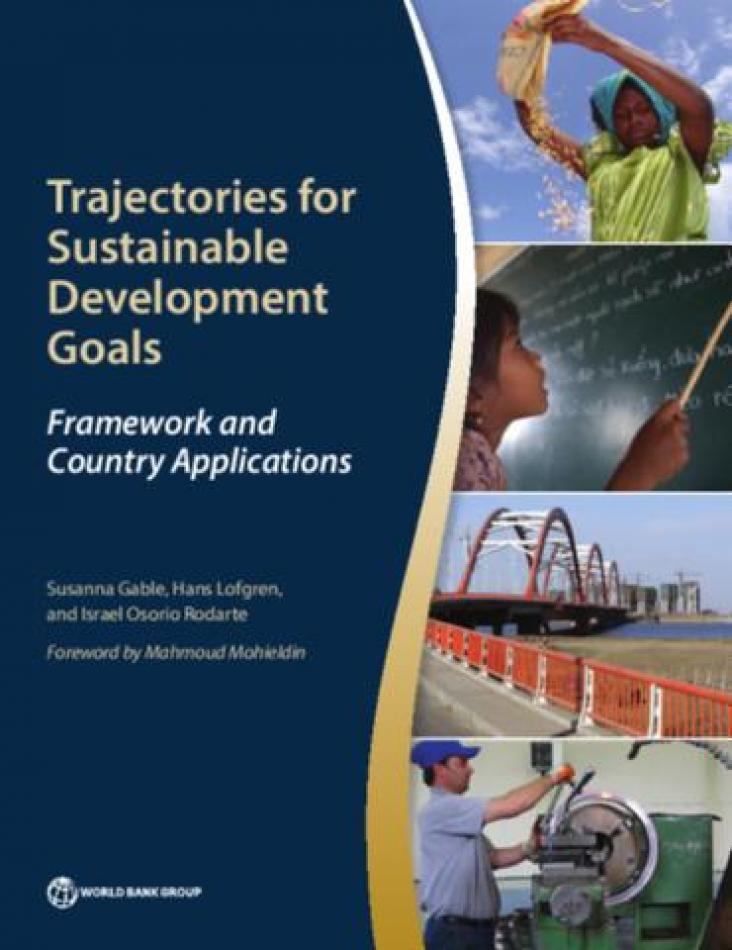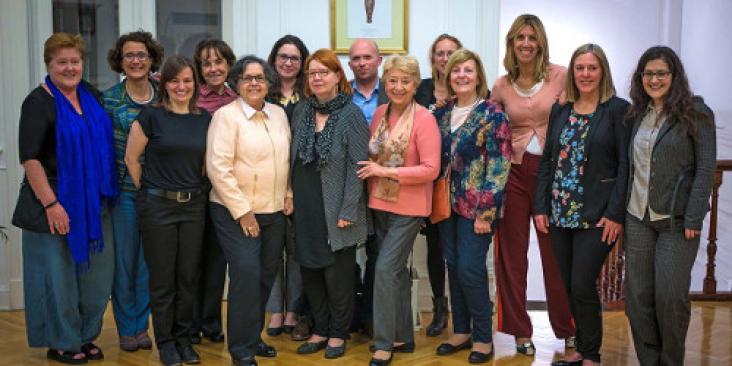
The aim of the conference is to examine the evolving expectations, available solutions, measurements and best practices associated with the optimization of research strategies. The theme of the 2017 conference will be "Universities and the Power of Data — Science for a Sustainable Society" and will focus on crucial areas such as sustainability, diversity, and the Power of Data in research. The event helps to advance SDG 4 Quality education and SDG 10 Reduced inequalities.
In the UK, average income growth fell to just 0.7% in the year running up to the general election in June, research from think tank the Resolution Foundation has found. The data illustrates the challenges faced by target SDG 10.1 to progressively achieve and sustain income growth of the bottom 40 per cent of the population at a rate higher than the national average.

This book presents the country development diagnostics post-2015 framework, developed by the World Bank Group to assess the country-level implications of the post-2015 global agenda, as well as brief, ‘at-a-glance’ applications of the framework to ten countries: Ethiopia, Jamaica, the Kyrgyz Republic, Liberia, Nigeria, Pakistan, Peru, the Philippines, Senegal, and Uganda.
Tourism and hospitality are labour intensive, with 8% of the global workforce employed in the sector. The critique of employment conditions in the sector is deeply rooted, low remuneration, anti-social hours, insecurity, limited access to training and poor career progression are charges regularly levelled at the industry. The World Responsible Tourism Awards showcases many examples of companies choosing to have inclusive labour practices.

Gender InSITE is an international initiative to promote the role of women in science, innovation, technology and engineering - supporting the goal of SDG target 10, Reduced Inequalities. The Elsevier Foundation has been a long-time advisor and supporter of GenderInSITE, most recently providing a $40,000 grant for two thematic workshops in 2017: one addressing Latin America, exploring how a gender perspective in science education is indispensable to a sustainable development and the second in the South African region focusing on Gender and Innovation.

Many countries are experiencing economic benefit from a surge in tourism, but once pristine landscapes are changing and local communities rarely benefit from the tourism, and instead run the risk of losing their livelihoods. Researchers in Thailand are investigating “creative tourism” – creative, sustainable approaches to tourism, that enable producers and consumers to relate and get value from their connections. This supports the tourism elements of SDGs 8, 12 and 14.
The Elsevier Foundation partners with the African Journal Partnership Program, pairing African health and medical journals with leading biomedical journals from the US and UK to build editorial skills through journal mentoring and training. Elsevier volunteers can spend up to one month supporting African journals to boost knowledge exchange, in line with SDG 10.

The marketing value of the concept of ecotourism is now very low, as there is very little evidence that it delivers. Many people in the developing world are unable to visit National Parks and suffer only negative impacts – loss of access for meat, fruits, thatching grass and land for agriculture. How does a consumer or tour operator identify wildlife operators and conservancies that are really making a contribution? Either to wildlife and habitat conservation or to the livelihoods of local communities to ensure that they benefit from conservation?
This article explores how lawyers can work together to increase social mobility and diversity within the legal profession. Julian Sayarer talks to Chris White, founder of Aspiring Solicitors, Chris Benn, lawyer at Kemp Little, Barry Matthews, an in-house lawyer with ITV, and Toby Hornett, legal director at Canon – Europe about the role in house teams play in promoting diversity and access, contributing to SDG 10, reduced inequalities.
The Blueprint for Business Leadership on the SDGs aims to inspire all business — regardless of size, sector or geography — to take leading action in support of the achievement of the Sustainable Development Goals (SDGs). It illustrates how the five leadership qualities of Ambition, Collaboration, Accountability, Consistency, and Intentional can be applied to a business' strategy, business model, products, supply chain, partnerships, and operations to raise the bar and create impact at scale. The Blueprint is a tool for any business that is ready to advance its principled approach to SDG action to become a leader. This chapter relates specifically to SDG 10.
